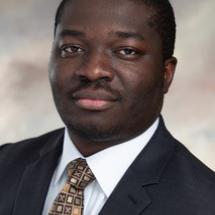Samuel T. Opoku, is an Associate Professor in the Department of Health Policy and Community Health, Jiann-Ping Hsu College of Public Health, Georgia Southern University. Dr. Opoku received his Ph.D. in Health Services Research Administration and Policy from The University of Nebraska Medical Center. Throughout his life in academia, Dr. Opoku’s research has sought to generate actionable evidence that would improve the health and healthcare access of disadvantaged populations through stakeholder engagement and the use of innovative research methods. He has disseminated his work through publications in reputable journals, policy briefs and technical reports, and presentations at several scientific and practice conferences as well as to state and local community leaders and policymakers. His current research efforts center around health delivery system improvement, particularly in rural settings.

Samuel T. Opoku, MBChB, Ph.D.
Associate Professor
-
Department of Health Policy and Community Health, Georgia Southern University